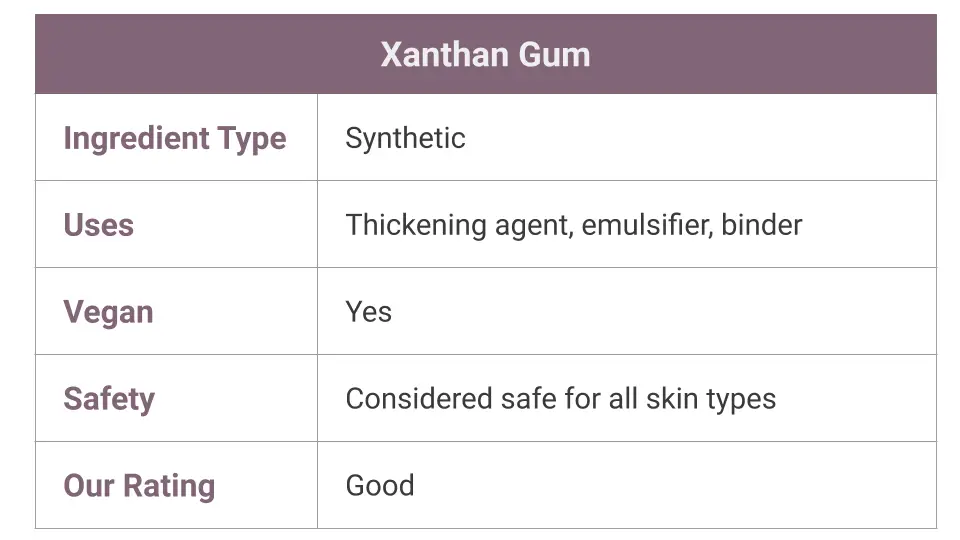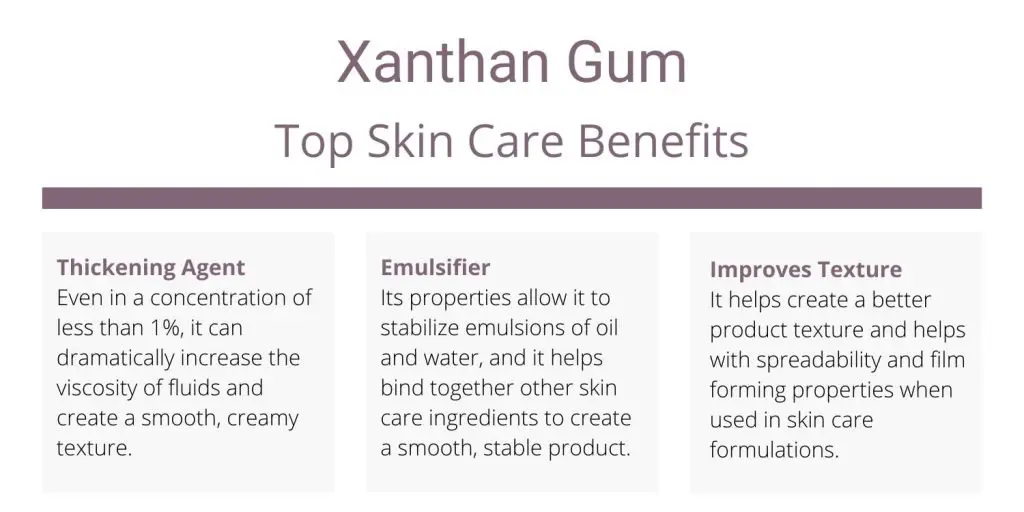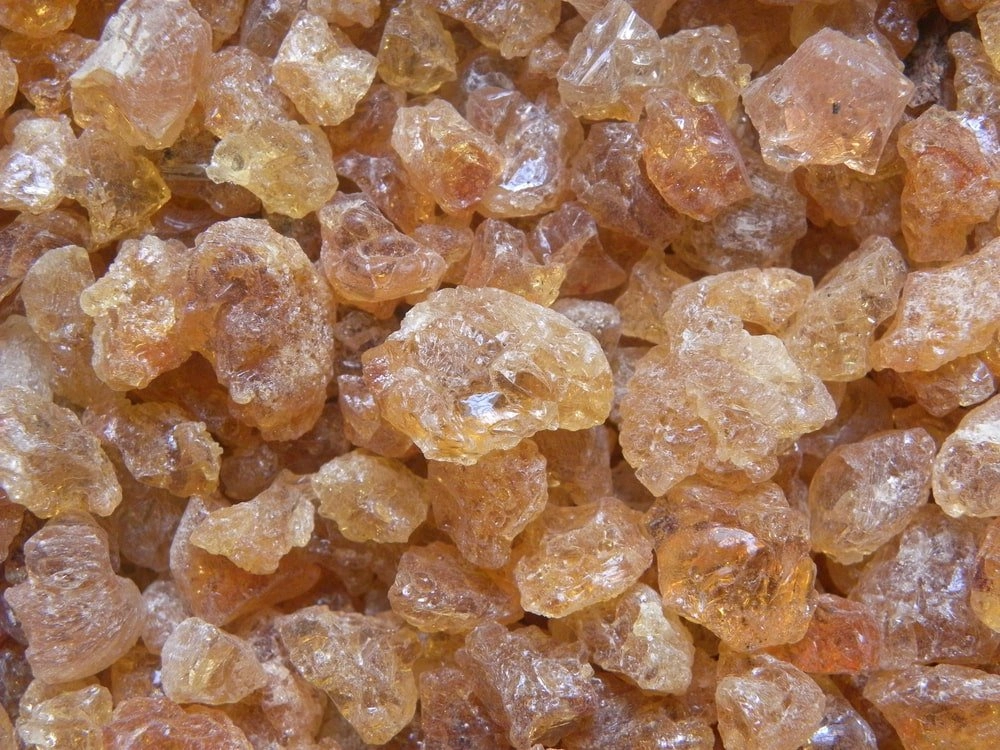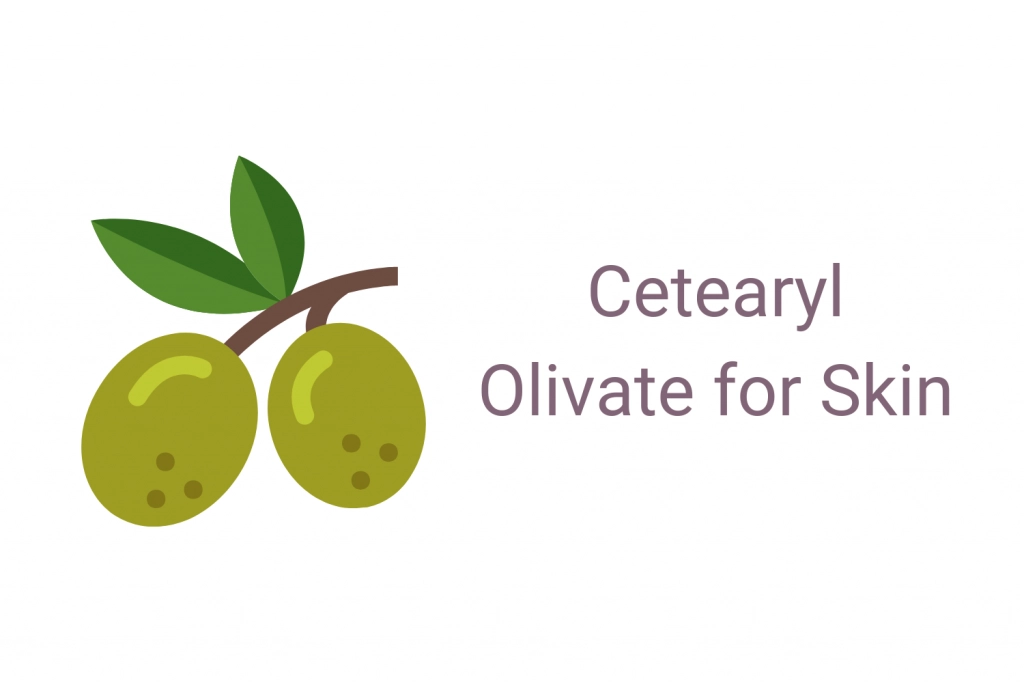Chances are you have several foods in your pantry and personal care products in the vanity that include xanthan gum as an ingredient. It is widely used, considered safe, and can even be found in organic skincare products.
This post may contain affiliate links. Read the full disclosure here
If this ingredient is safe enough to eat, it should be safe enough to put on your skin right?

What is Xanthan Gum?
Xanthan gum is a polysaccharide (long-chain carbohydrate) that is produced from a variety of simple sugars. Glucose and fructose-containing ingredients are combined with the Xanthomonas campestris bacteria. This bacteria is what the name “xanthan gum” is derived from.
The result of this fermentation process is a highly-effective, food-safe gelling and thickening agent. Xanthan gum was first used in the 1960s, and it’s found in a wide variety of food products and cosmetics today due to its useful thickening properties.
Xanthan Gum Uses & Benefits for Skin
Xanthan gum skin benefits are primarily related to its thickening and smoothing properties. It doesn’t offer direct skin benefits, but it enhances the texture of your favorite skincare products. It can help prevent product ingredient separation and thicken up products so they have a spreadable, smooth texture.
- Thickening agent – Xanthan gum in skincare is one of the most powerful (and popular) thickening agents available. Even in a concentration of less than 1%, it can dramatically increase the viscosity of fluids and create a smooth, gelatinous, or creamy texture.
- Emulsifier and binder – The thickening properties of xanthan gum also allow it to stabilize emulsions of oil and water, and it helps bind together other ingredients to create a smooth, stable product that’s easy to store and use.
- Improves product texture – Xanthan gum helps create a better product texture and helps with spreadability and film-forming properties when used in skincare formulations.

Xanthan gum is popular in nearly all cosmetics such as mascara, lipstick, and foundation. You’ll also find it in cleansers, moisturizers, treatment gels, anti-aging creams, and more. The FDA has thousands of report uses of xanthan gum.
This funny-sounding ingredient is popular among clean, good-for-you skincare brands since it is naturally derived and safe. It can also be vegan, organic, and kosher.
Other ingredients that offer similar benefits are Hydroxyethylcellulose and acacia senegal gum. Both popular thickening agents in skincare products.
Is Xanthan Gum Vegan?
Yes. Xanthan gum is usually vegan. It’s commonly prepared from a combination of glucose and fructose, both of which are usually derived from common grains and foods like soybeans, wheat, or corn.
However, xanthan gum can also be derived from lactose, which is found in dairy milk. If you are unsure of the source of the xanthan gum used in a skincare product, it may not be vegan. If the product is advertised as vegan, though, you can be relatively certain that the xanthan gum is not animal-derived.
Can Xanthan Gum Cause Acne?
There aren’t any studies that have linked xanthan gum to acne or causing issues that could result in acne. Some of the top acne-fighting brands have clinically proven products that include xanthan gum as an ingredient.
You’ll find xanthan gum in Murad, Proactiv, and Neutrogena. These well-known, tested and proven brands wouldn’t be using this ingredient if there was a risk of causing acne. The acne treatment products from these brands are effective, even when they include xanthan gum as an ingredient.
Is It Safe for Skin?
Xanthan gum is considered safe to use in skin care and it doesn’t have known issues related to toxicity. It’s even safe to eat. It’s a well-known food additive that’s used to thicken soups, jellies, pudding, sauces, and a wide variety of other products.
Xanthan gum is safe for the skin, even for those who may have allergies or suffer from sensitive skin. A review of xanthan gum by the Cosmetic Ingredient Review (CIR) Expert Panel found it to have a risk rating of 1 on scale of 1 to 10.
Concerns
It is possible for some people to have allergic reactions xanthan gum, since it can be derived from corn, wheat, dairy, or soy. However, this usually only applies to oral consumption of xanthan gum, rather than application to the skin.
Also Known As
Xanthan gum is, by far, the most common term for this skincare ingredient. However, xanthan gum for skin care may also be called by other names including bacterial polysaccharide or corn sugar gum, in some cases. These terms all refer to the same ingredient.



